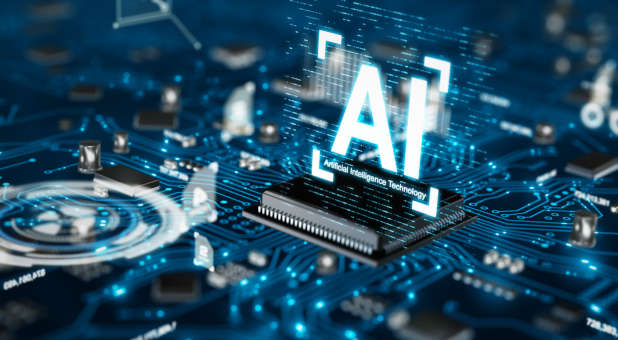10 Things the Church Must Do to Survive AI
In this era of fast-paced technological progression, Artificial Intelligence (AI) emerges as a force of change that ceaselessly drives transformation across various spheres of society. Because of the vast transformation of our future, I’ve been studying the implications of AI, so I could help position the church.
1. Reformation of pastoral roles – Pastors relying mainly on their oratory skills might find their roles taken over by AI-generated content. AI technology has the potential to communicate spiritual truth with efficacy. However, the pastoral roles that survive this shift would involve genuine engagement with congregants, walking alongside them in their spiritual journey and actively participating in their discipleship. This suggests that despite technological advancements, the human elements of empathy, understanding and spiritual mentorship cannot be replaced.
2. AI-generated church services – AI could be developed to create hyper-realistic holographic presentations of preaching and musical worship. While some churches might be tempted to adapt to these technologically enhanced experiences, I anticipate an eventual backlash against this with congregations’ growing desire for authenticity. The future, I predict, would value real pastors and empathetic communities over virtual experiences.
3. Job replacement due to AI – Artificial Intelligence’s broad-ranging integration across various industries threatens numerous jobs. At-risk jobs include radiologists, auditors, bill collectors, screenwriters, fashion designers and even computer programmers and coders, among the professions potentially affected by AI. Goldman Sachs’ projection states that AI will cause the loss of approximately 300 million jobs worldwide.
4. Exploring universal income – The substantial societal impact due to widespread job losses could compel governments to explore the concept of universal income. Similar to initiatives rolled out during the COVID pandemic, these programs would provide financial support to those left jobless due to the increasing implementation of AI. However, what is needed is a comprehensive response to AI-induced job displacement that would necessitate a balanced approach from both the public and private sectors.
5. AI in advertising – Advertising is another sector in which AI is playing a dominant role in the future. I foresee AI-generated holograms replacing human actors in commercials, making advertising more cost-effective and versatile. As AI personas dominate promotional content, the advertising industry could witness a significant shift in how products and services are marketed.
6. AI-generated robots replacing laborers – Advancements in AI and robotics could lead to an increase in efficiency in labor-intensive tasks. AI-generated robots may replace human laborers in numerous sectors, including factory jobs-which would drastically shift employment dynamics. This change would raise questions about the ethical implications of AI and the need for new labor policies.
7. AI-enhanced Bible translations – In the realm of biblical scholarship, AI could prove to be a valuable tool for producing more accurate translations of the Bible. Leveraging AI language models and large biblical manuscript databases, scholars can create translations that consider different objectives, such as word-for-word translation, sentence equivalence or paraphrasing. AI could thus enhance the depth and breadth of biblical understanding.
8. Synthesized uni-faith religious Bible – Drawing from historical precedents, AI can be utilized to foster religious synthesis. AI could potentially contribute to creating a unified religious text or Bible that incorporates diverse faith perspectives. For example, a Bible can be produced that incorporates aspects of Hinduism, Confucius, Islam, Judaism and the New Age that appeal to those calling for a one-world religion. It could eventuate in another attempt (IE, “The Tower of Babel,” the story of King Nebuchadnezzar in Daniel 3 or Revelation 13) to enforce a one-world-inclusive religion. Hopefully, no government or UN-mandated project will ever attempt to enforce this.
9. AI-powered content production – With the power of AI language models like ChatGPT, I envision a future where creating books, articles, blogs and videos is democratized. The AI’s ease of use and accessibility could empower millions of individuals, even those who have never considered writing before, to become content creators. This influx of new writers and creators could bring a significant shift in the media and publishing landscapes, introducing diverse voices and perspectives like never before.
10. Rise of deepfake technology – Deepfake technology is a critical point of concern regarding AI’s future implications. Powered by AI, deepfakes have the unnerving ability to imitate a person’s image and voice convincingly. This can result in a dramatic rise in misleading content across social media and other digital platforms. Political figures, renowned leaders and even pastors could fall victim to malicious deepfake applications, leading to confusion and reputation damage.
But the implications of deepfakes extend beyond personal attacks. They can also be harnessed to spread false information, manipulate public sentiment, influence political elections and corrode societal trust. As AI continues to enhance its deepfake generation capabilities, individuals and organizations become more critical than ever to stay alert, verify sources and critically assess content before forming conclusions.
In response to the deepfake threat, researchers and technologists worldwide are exploring advanced detection methods and tools. Raising public awareness about the existence and potential harm of deepfakes is crucial to promoting responsible media consumption and fostering digital literacy.
As we stand on the cusp of a future heavily influenced by AI, my goal in writing this article is to alert the church of the profound changes that await us. While AI promises unprecedented advancements and opportunities, it also calls for our vigilance, adaptability and critical thinking to navigate its challenges effectively.
I hope the body of Christ will provide thought leaders with a Christian worldview that will steer AI’s potential to create a future that upholds our shared values of trust, integrity, and authenticity. {eoa}
Join Charisma Magazine Online to follow everything the Holy Spirit is doing around the world!
Dr. Joseph Mattera is an internationally-known author, consultant and theologian whose mission is to influence leaders who influence culture. He is the founding pastor of Resurrection Church, and leads several organizations, including The U.S. Coalition of Apostolic Leaders and Christ Covenant Coalition. Dr. Mattera is the author of 13 bestselling books, including his latest The Purpose, Power, and Process of Prophetic Ministry, and is renowned for applying Scripture to contemporary culture.




























































